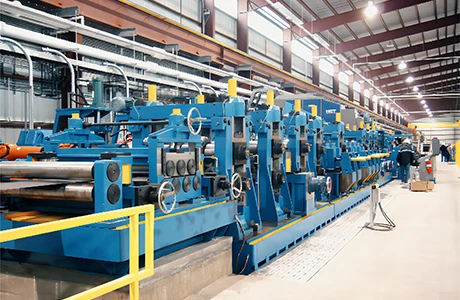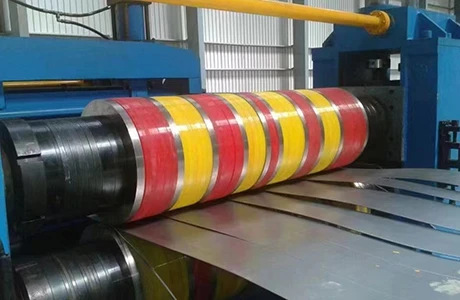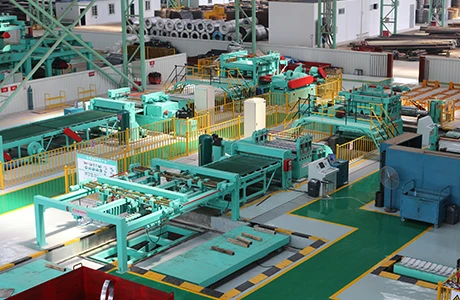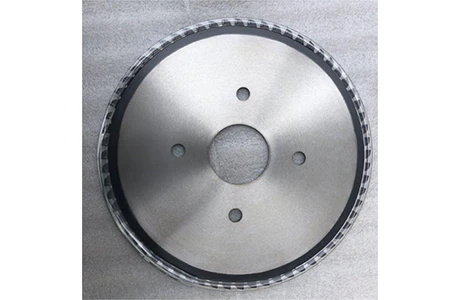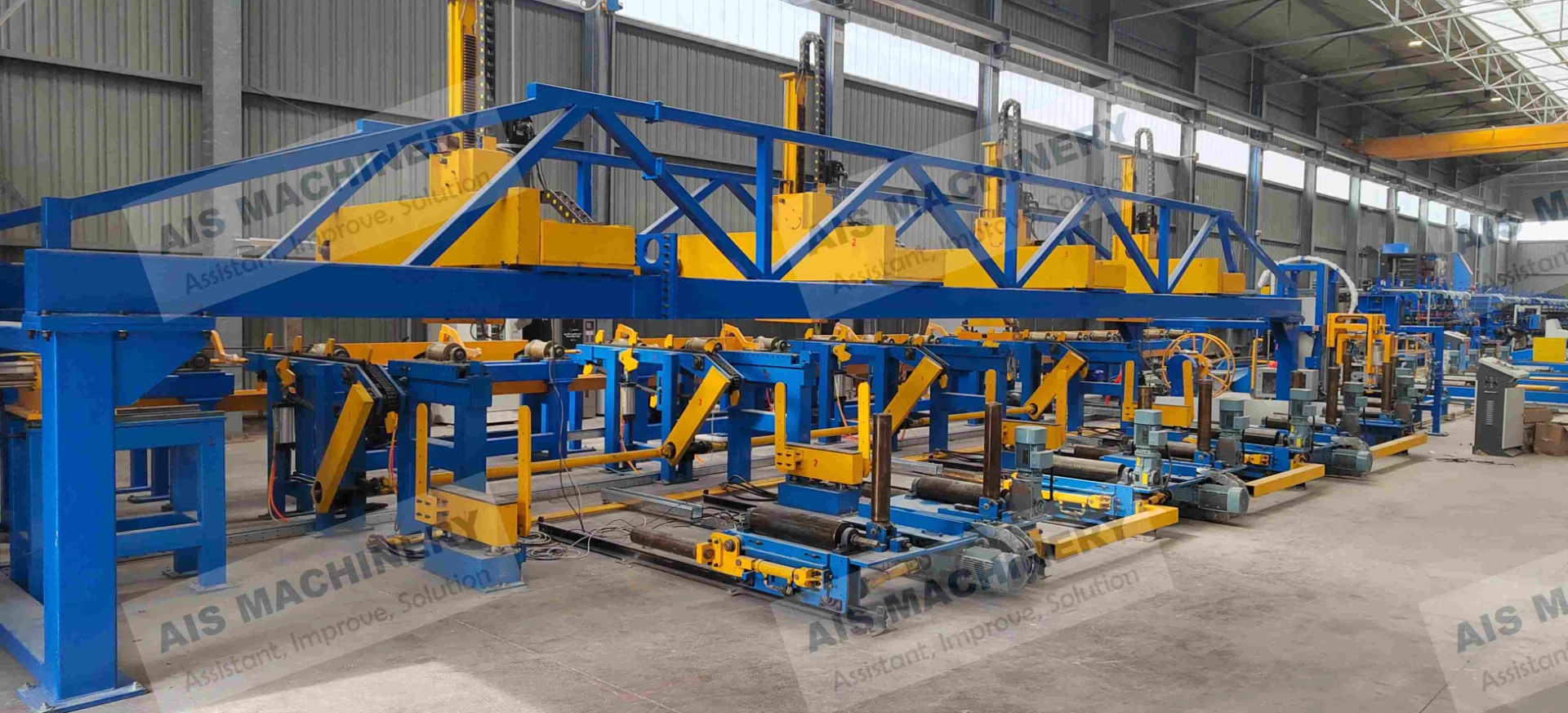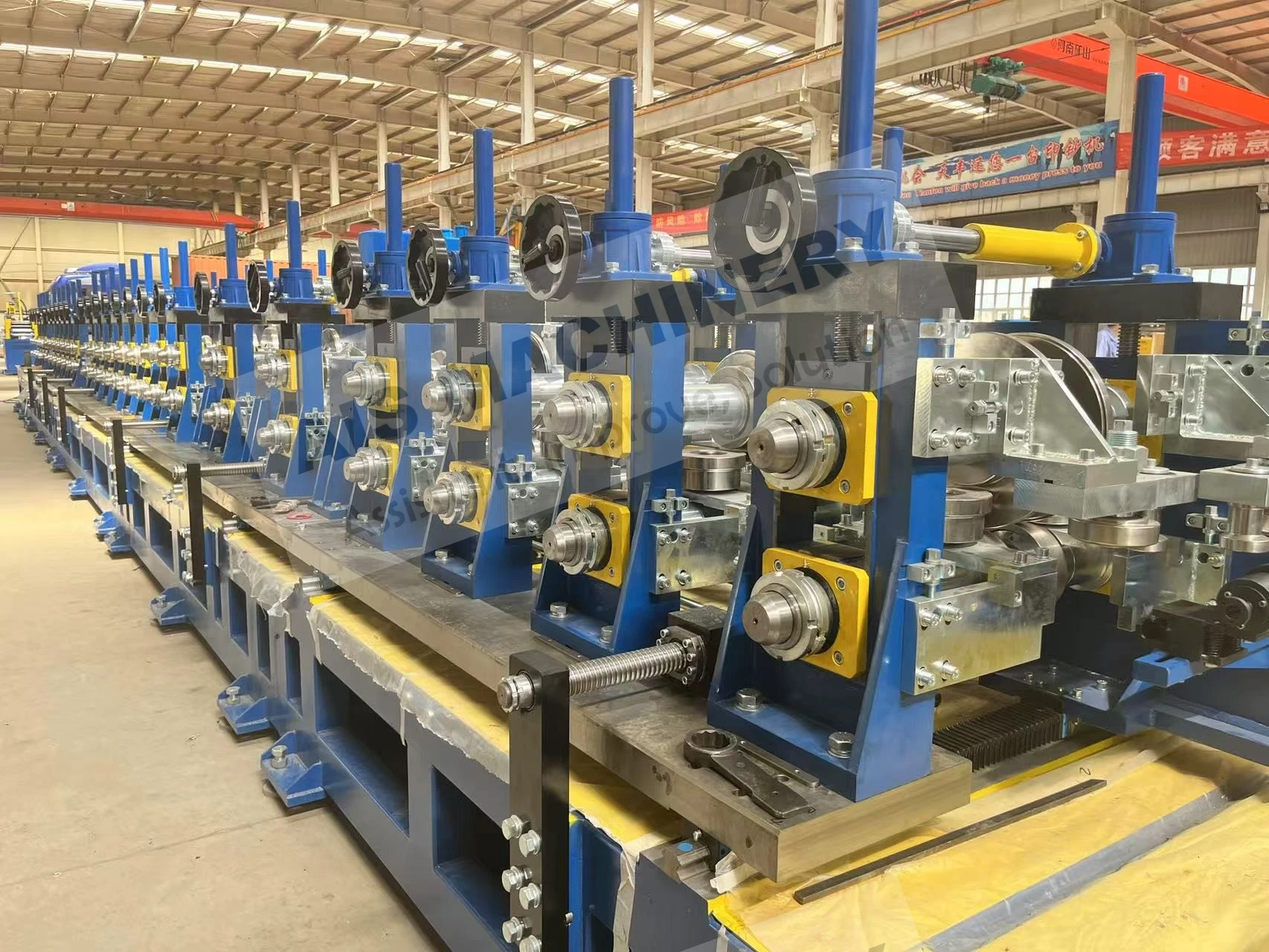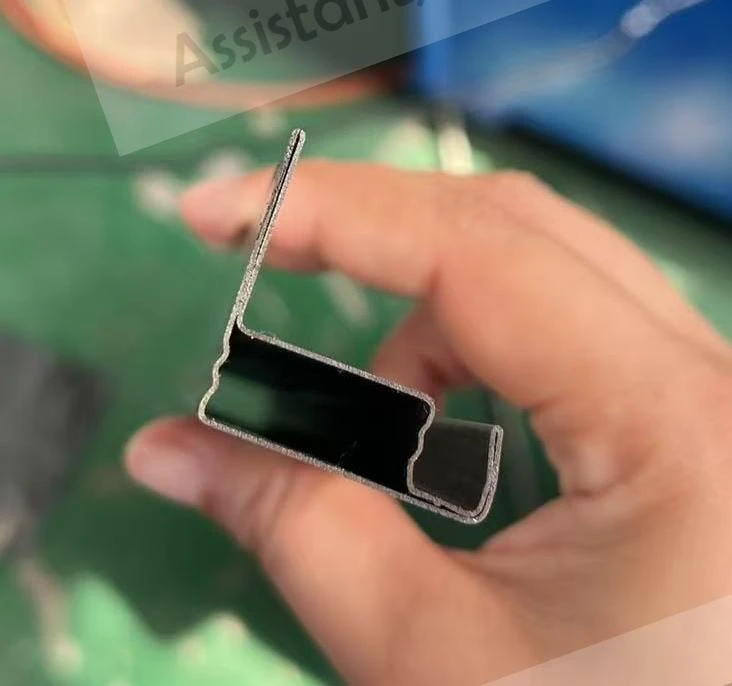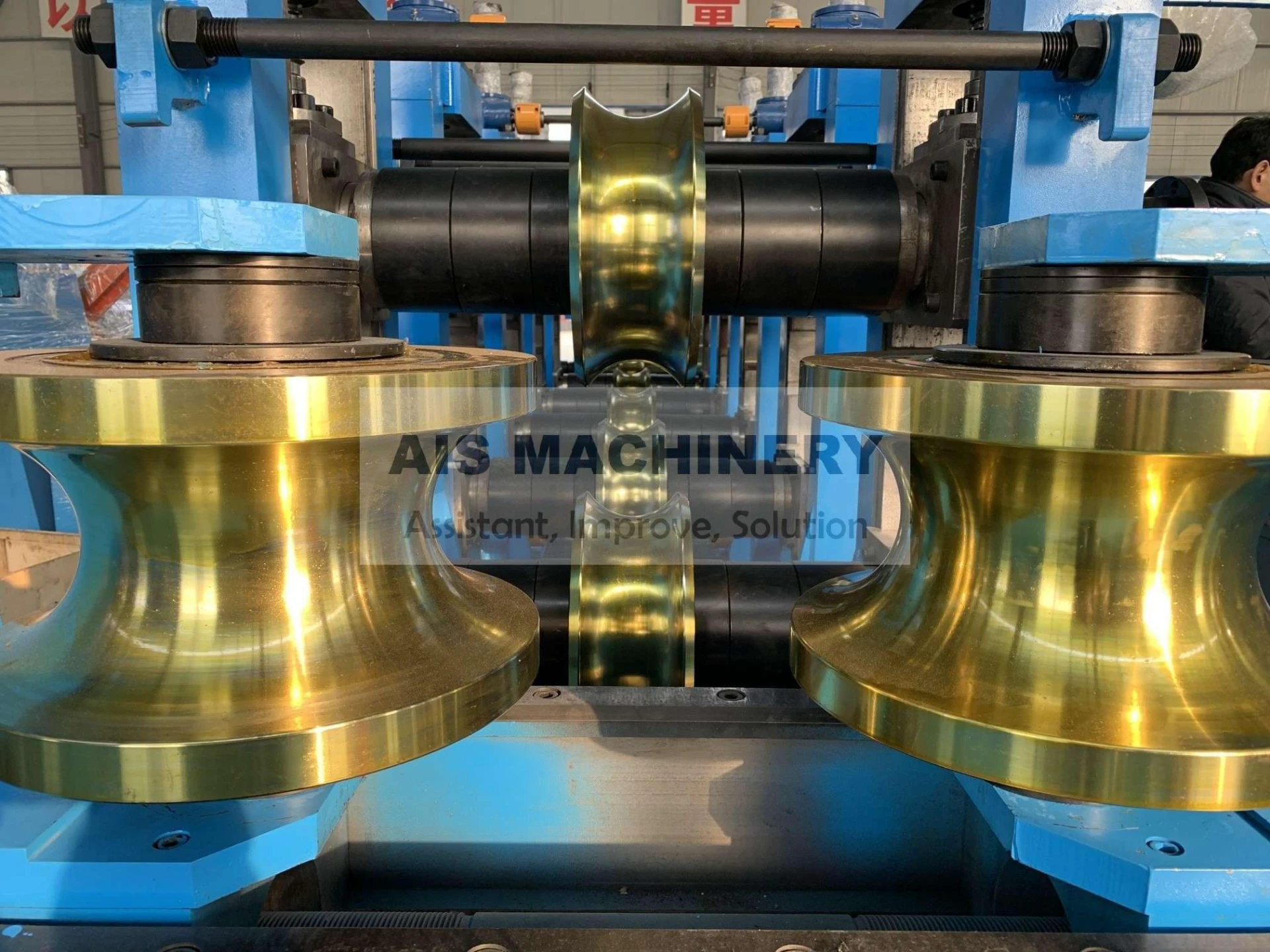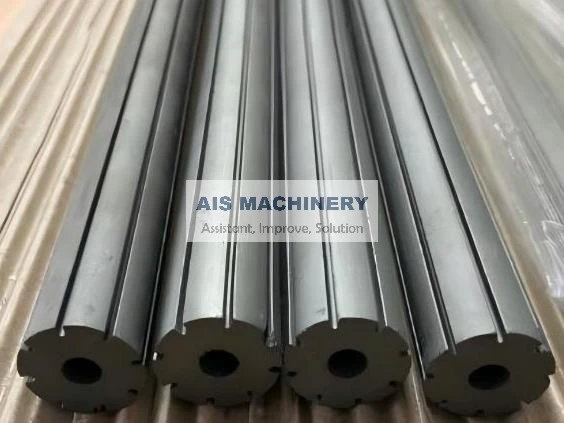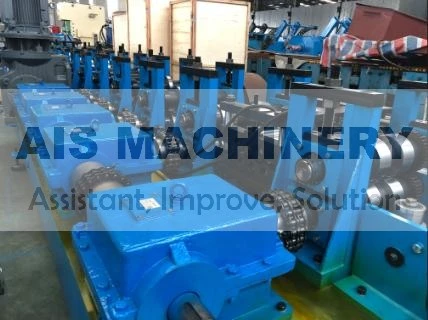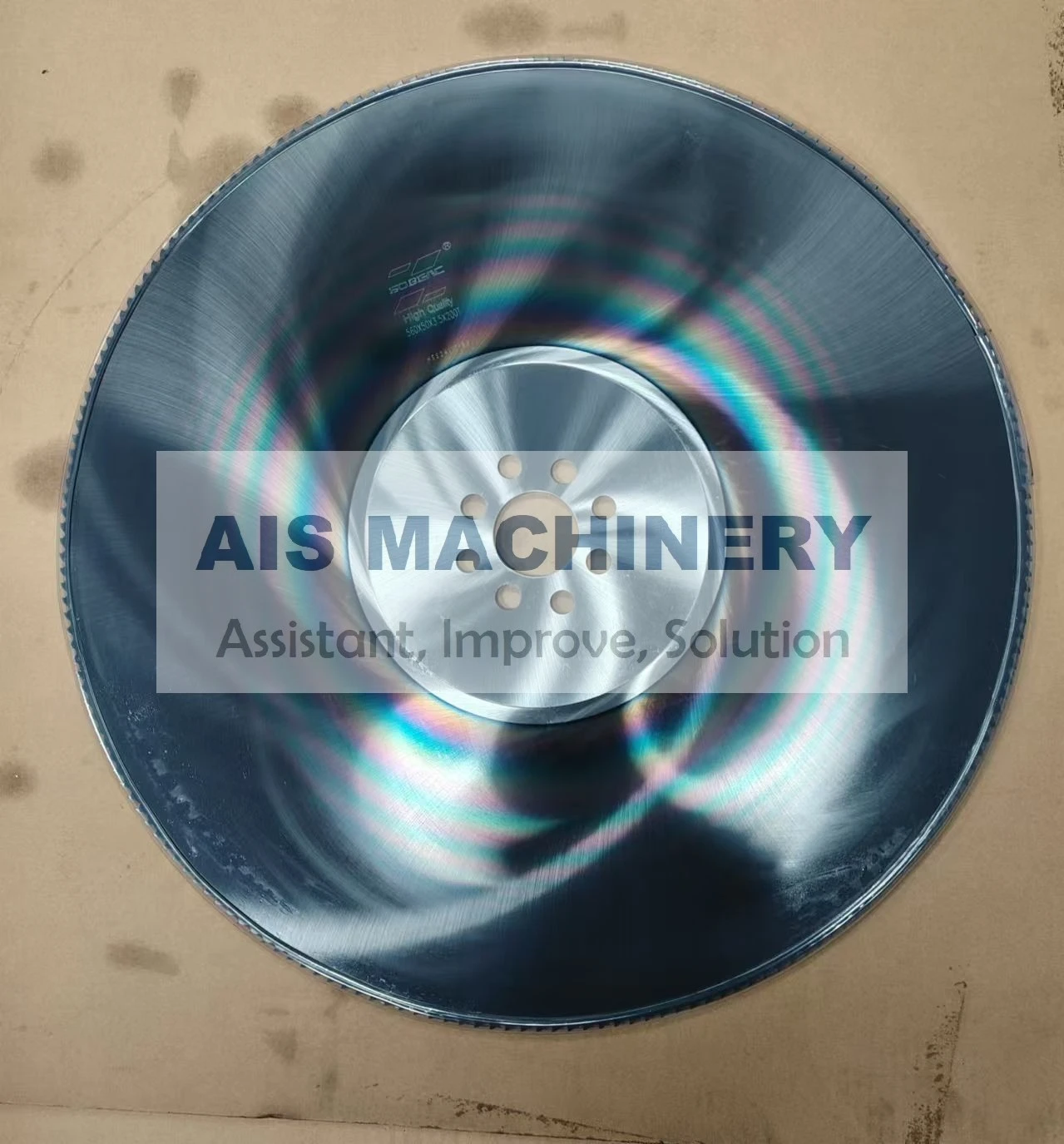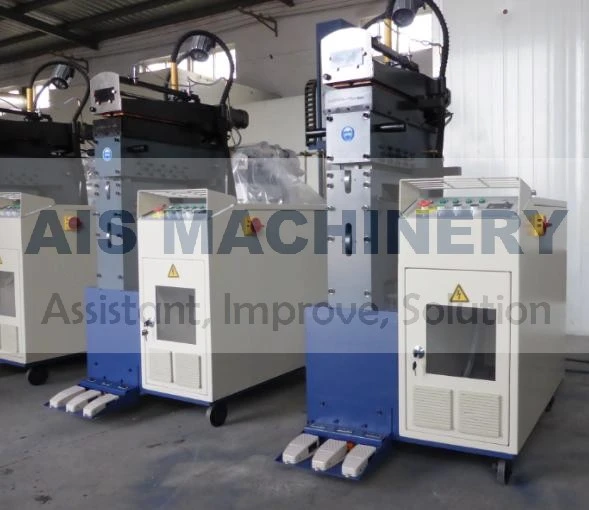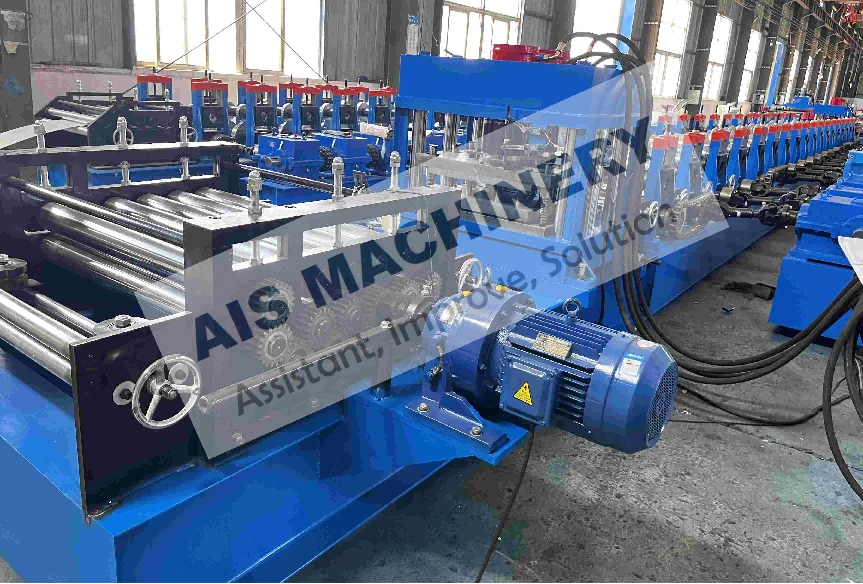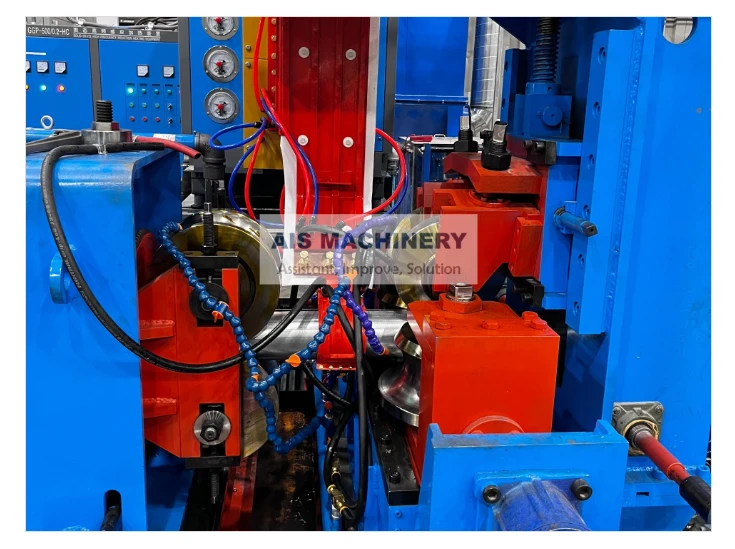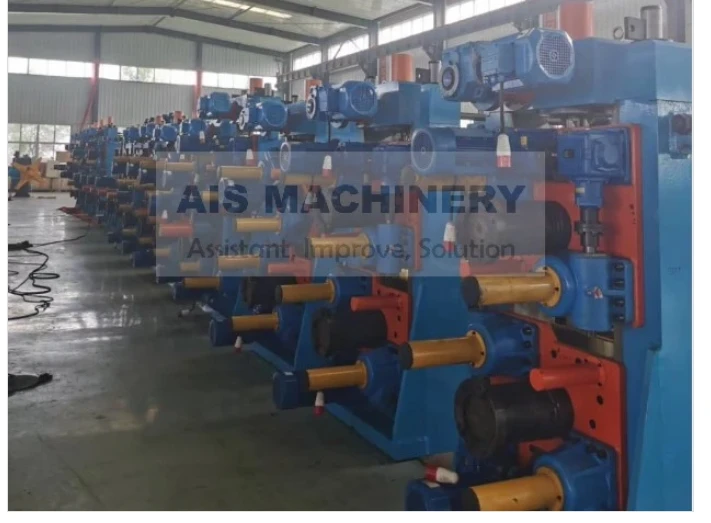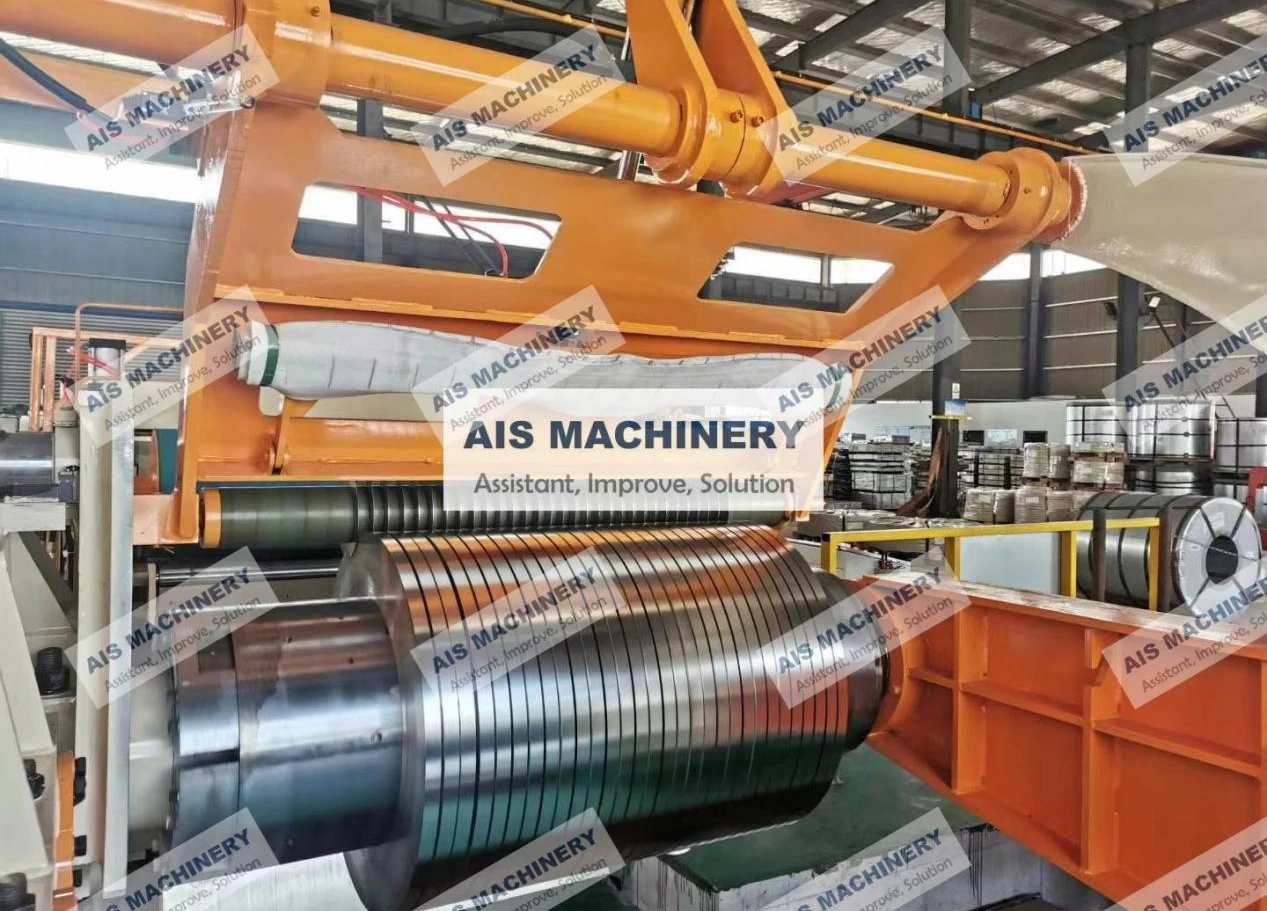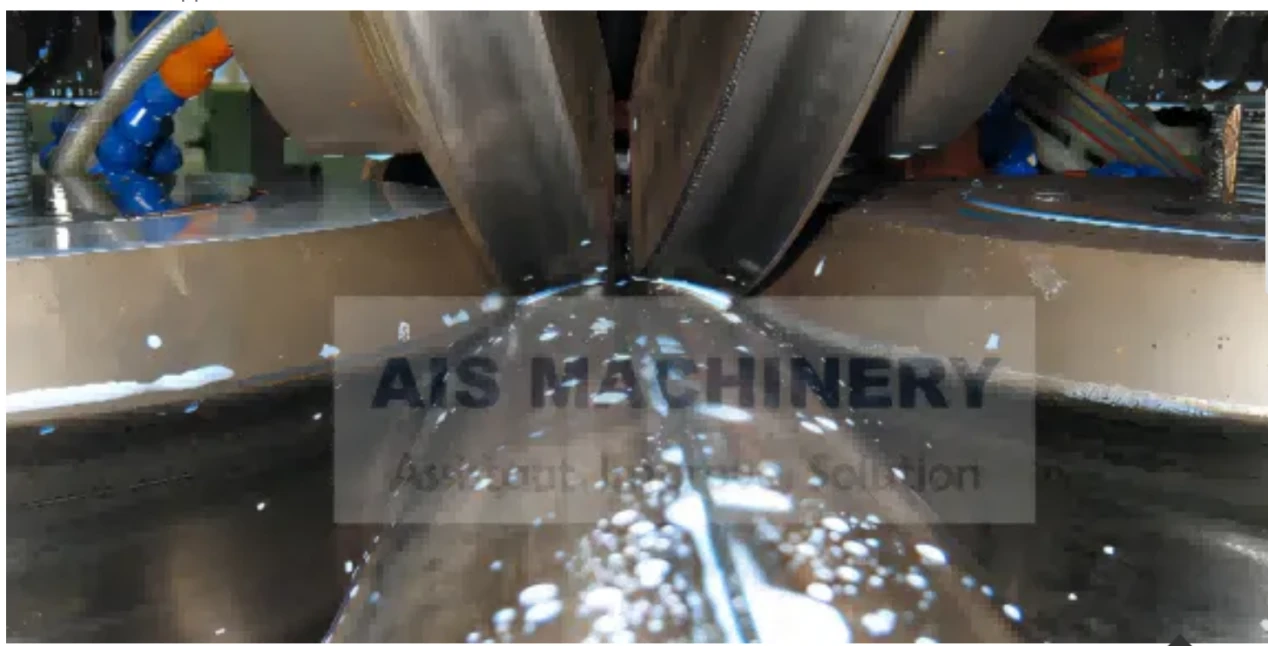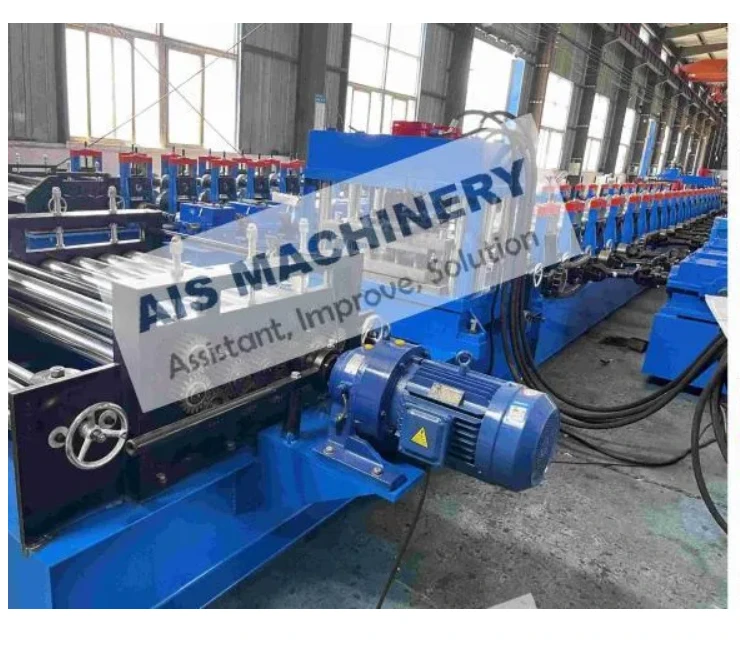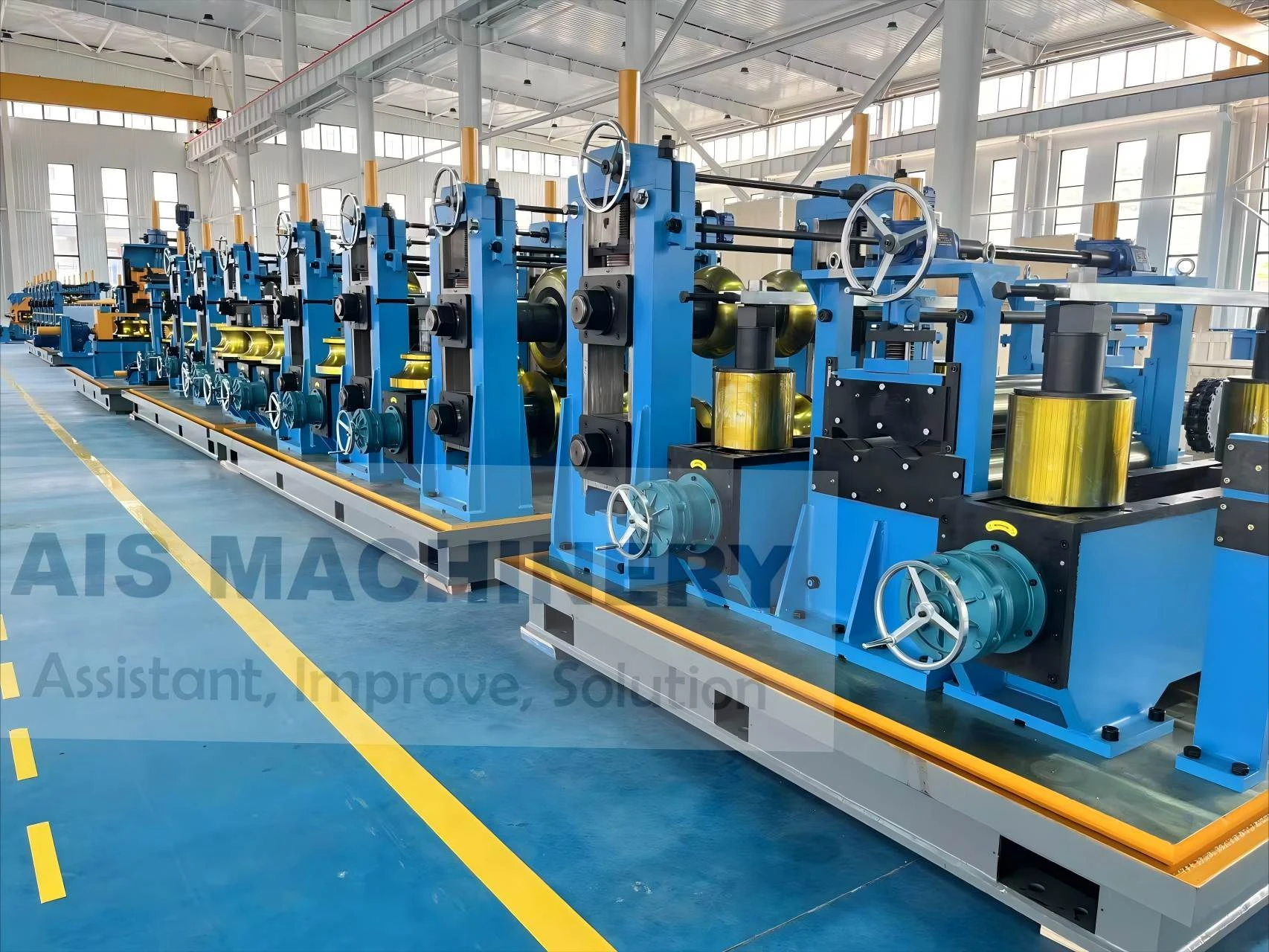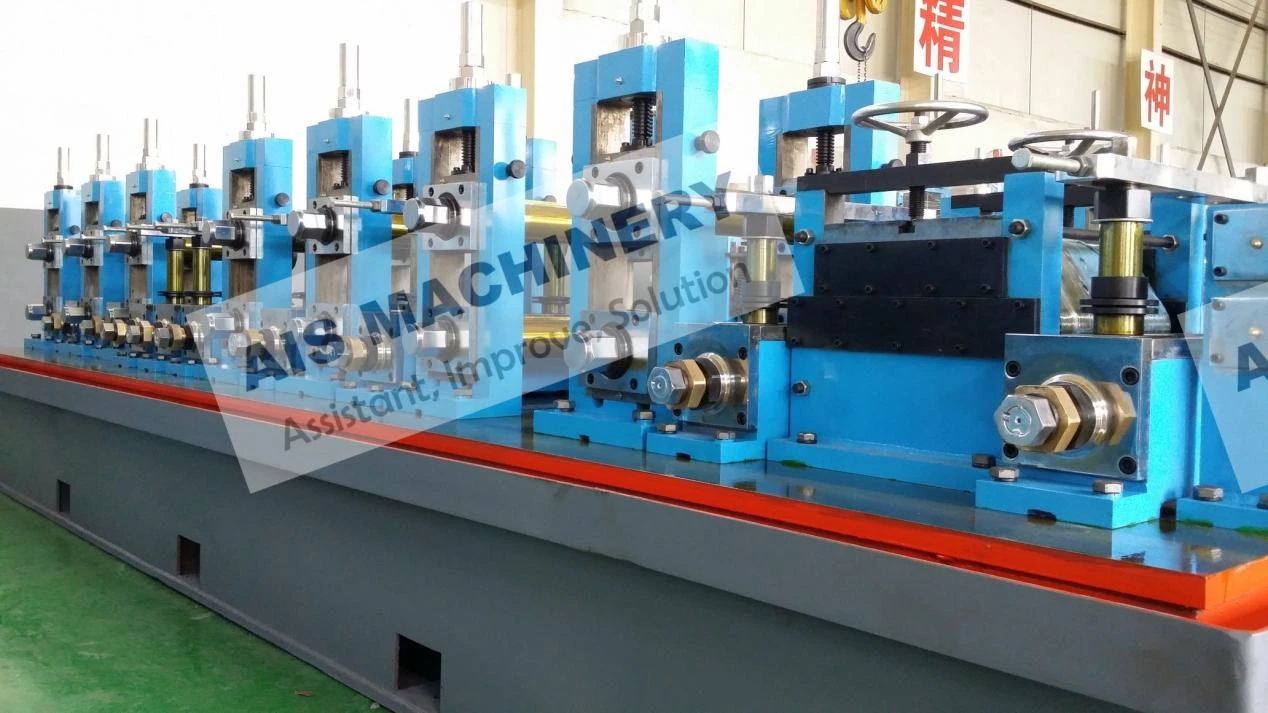-
 Tel:86-15176910262
Tel:86-15176910262
-

Search
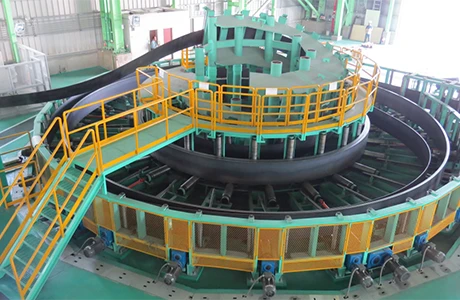
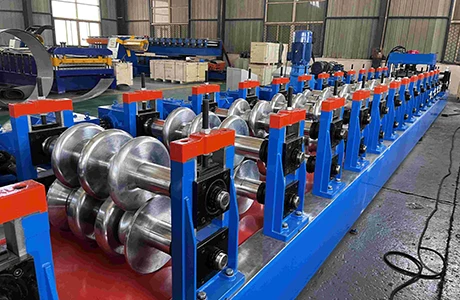
Tube Mill for Sale - ERW Welded Pipe Making Machine
Aug . 18, 2025 05:20
Navigating the Landscape of Advanced Tube Mill Technology for Industrial Operations
In the robust and ever-evolving landscape of industrial manufacturing, the demand for high-quality, precision-engineered tubing is paramount across diverse sectors, ranging from construction and automotive to oil & gas and HVAC. At the heart of this production capability lies the tube mill, a sophisticated system designed to transform flat metal strips into tubular forms with unparalleled efficiency and consistency. The market for a tube mill for sale is highly dynamic, reflecting continuous advancements in material science, automation, and energy efficiency. Modern tube mills are not merely machines; they are integrated solutions capable of producing a vast array of pipe diameters and wall thicknesses from various materials, including carbon steel, stainless steel, and galvanized steel. The integration of advanced control systems, such as Programmable Logic Controllers (PLCs) and Human-Machine Interfaces (HMIs), ensures superior operational precision and reduces human intervention, leading to enhanced productivity and minimized error rates. Furthermore, the rising emphasis on sustainability in manufacturing has driven innovation towards more energy-efficient designs and processes, which consume less power and generate less waste. As industries globalize and supply chains become more intricate, the ability to rapidly produce high-quality, cost-effective tubing tailored to specific project requirements becomes a critical competitive advantage. Understanding the nuances of these machines, from their foundational components like the uncoiler to their intricate welding and sizing mechanisms, is essential for any enterprise looking to invest in new production capabilities or upgrade existing ones. The right `tube mill` represents a strategic investment in future-proof manufacturing, offering scalability, adaptability, and long-term operational resilience in a demanding market.
The selection of a specific `welded tube mill` or `erw tube mill china` solution hinges on a meticulous evaluation of production demands, material specifications, and desired output quality. Industry trends indicate a strong push towards greater automation and digitalization, enabling real-time monitoring, predictive maintenance, and seamless integration with broader manufacturing execution systems (MES). This shift is particularly evident in high-volume production environments where uptime and throughput are critical performance indicators. Key technological innovations, such as high-frequency induction welding (ERW - Electric Resistance Welding), have revolutionized tube manufacturing by delivering robust, clean, and consistent welds at high speeds, significantly reducing post-weld processing requirements. Moreover, the design of integral components, such as the `hydraulic uncoiler`, plays a pivotal role in ensuring a smooth and continuous feed of raw material, which is fundamental to maintaining consistent production speed and product quality. A well-designed uncoiler minimizes material wastage and reduces downtime associated with coil changes. The integration of advanced leveling and forming sections within a `tube mill machine` ensures that the strip is perfectly prepared and precisely shaped before welding, guaranteeing dimensional accuracy and structural integrity of the final product. Manufacturers are increasingly focusing on modular designs that allow for easier maintenance, faster tooling changes, and greater flexibility to adapt to varying product specifications. This forward-looking approach ensures that a new `tube mill for sale` is not only a current asset but a long-term solution capable of evolving with future market demands and technological advancements, positioning companies at the forefront of their respective industries by enhancing production capabilities and optimizing operational efficiency.
Unveiling the Sophisticated Manufacturing Process of a Modern Tube Mill
The manufacturing process within a modern tube mill for sale is a meticulously choreographed sequence of operations, designed to transform flat metal coils into high-precision tubular products. This intricate journey begins with the raw material—typically steel coils of various grades (e.g., carbon steel, stainless steel, galvanized steel), selected based on the end application's strength, corrosion resistance, and ductility requirements. The first critical step involves feeding the coil into the `tube mill` via an `uncoiler`, often a `hydraulic uncoiler`, which provides precise control over the unrolling speed and tension, preventing material damage and ensuring a steady supply. Following uncoiling, the metal strip undergoes a flattening process by a leveling machine, preparing it for subsequent forming. The formed strip then enters the heart of the `tube mill machine`: the forming section. Here, a series of rollers progressively shape the flat strip into an open-seam tube. This is a crucial stage where the accuracy of the final tube's diameter and roundness is largely determined. After precise forming, the tube proceeds to the welding section, commonly employing Electric Resistance Welding (ERW) technology, especially for `erw tube mill china` installations. ERW involves passing a high-frequency current through the edges of the formed strip, heating them to a molten state, followed by immediate pressure application to forge them together, creating a strong, clean seam without filler material. This method is highly favored for its speed, efficiency, and consistent weld quality, leading to superior structural integrity and smooth internal surfaces, which are vital for applications like fluid conveyance.
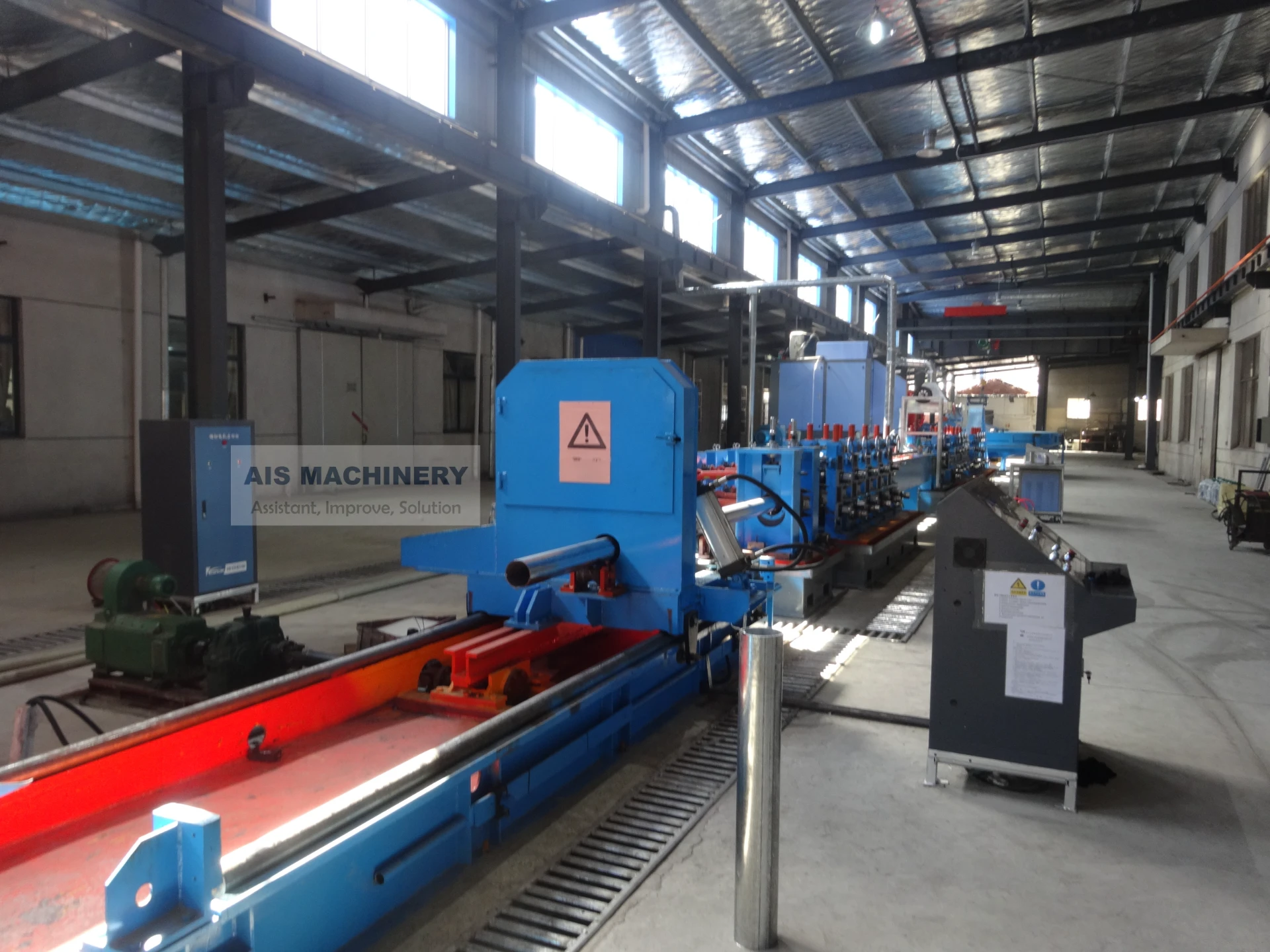
Post-welding, the tube undergoes several critical finishing stages to ensure it meets stringent quality and dimensional specifications. The sizing section fine-tunes the tube's outer diameter and wall thickness, achieving the exact dimensions required for the application. This stage is paramount for meeting industry standards such as ISO (International Organization for Standardization) for quality management, ANSI (American National Standards Institute) for product performance, and various ASTM (American Society for Testing and Materials) material specifications. Some mills integrate an internal and external deburring unit to remove excess weld flash, ensuring a smooth finish critical for aesthetic and functional purposes, particularly in applications where fluid flow is paramount or where subsequent coating processes are applied. Non-Destructive Testing (NDT) methods, such as eddy current testing or ultrasonic testing, are frequently employed after welding to detect any potential flaws or inconsistencies in the weld seam, guaranteeing the highest quality output. Finally, a flying saw or cold saw cuts the continuous tube into predetermined lengths, ensuring precise cut accuracy without stopping the production line. The finished tubes are then typically collected on a run-out table, ready for stacking, bundling, and dispatch. The robust construction and precision engineering of a quality `welded tube mill` ensure an extended service life, often exceeding 20 years with proper maintenance, making it a reliable asset for continuous industrial production in sectors like petrochemical, metallurgy, and water supply/drainage, where advantages such as energy efficiency, superior anti-corrosion properties (depending on material), and high-pressure resistance are highly valued, contributing significantly to operational cost savings and product reliability.
Key Technical Parameters and Performance Metrics of a High-Performance Tube Mill
When considering a tube mill for sale, understanding its key technical parameters is crucial for assessing its suitability for specific production requirements and its overall operational efficiency. These parameters define the machine's capabilities and limitations, directly impacting the types of products it can manufacture and its potential output. Critical specifications typically include the pipe outer diameter (OD) range, which dictates the smallest and largest tubes the mill can produce, and the wall thickness range, defining the material gauge it can process. For instance, a versatile `tube mill` might handle ODs from 20mm up to 406mm and wall thicknesses from 1.0mm to 12.7mm, covering a broad spectrum of industrial applications. Production speed, often measured in meters per minute (m/min), is another vital metric, indicating the mill's throughput capacity. High-speed `ERW tube mill china` models can achieve speeds of 20-120 m/min, significantly boosting productivity. The type of raw material the `tube mill machine` can process—such as hot-rolled steel, cold-rolled steel, galvanized steel, or various grades of stainless steel—also determines its versatility. Power consumption, expressed in kilowatts (kW), provides insight into the operational costs and energy efficiency of the system, with modern designs increasingly focusing on reducing energy footprints. The total line length and the overall dimensions of the `welded tube mill` are important for factory layout and space planning. Furthermore, the number and configuration of forming and sizing stands, as well as the type of welding technology (e.g., solid-state high-frequency welding for ERW), are integral to achieving precise tube geometry and weld integrity.
| Parameter | Description | Typical Range/Value |
|---|---|---|
| Tube Outer Diameter (OD) | Range of finished pipe diameters. | Φ20mm - Φ406mm (0.78" - 16") |
| Wall Thickness (WT) | Range of material gauge that can be processed. | 1.0mm - 12.7mm (0.04" - 0.5") |
| Production Speed | Maximum output speed of finished tubes. | 20 - 120 m/min |
| Raw Material Type | Types of metal coils the mill can process. | Carbon Steel, Stainless Steel, Galvanized Steel |
| Total Power (Installed) | Total electrical power required for operation. | 250 kW - 1500 kW (varies by size) |
| Welding Method | Primary welding technology employed. | High-Frequency Induction Welding (ERW) |
| Line Length (Approx.) | Overall footprint of the entire production line. | 30m - 100m |
| Main Motor Power | Power for the main drive system. | 55 kW - 400 kW |
Beyond these static parameters, performance metrics such as operational efficiency, uptime percentage, and scrap rate are vital for evaluating the long-term value of a `tube mill machine`. A high-performance mill minimizes material waste through precise cutting and optimized welding, contributing to lower production costs. Automation levels, ranging from basic manual controls to fully integrated PLC-based systems with automatic fault detection, significantly influence labor requirements and consistency. The type and capabilities of the `uncoiler`, particularly a robust `hydraulic uncoiler`, are fundamental to the mill's overall performance, ensuring a steady, tension-controlled feed that prevents material damage and maintains consistent production speed. The integration of advanced tooling and quick-change systems allows for rapid transitions between different tube sizes, minimizing downtime and maximizing versatility. Furthermore, the inherent energy efficiency of the welding process, often supported by features like automatic power factor correction, translates into substantial savings on electricity bills over the machine's lifespan. By meticulously evaluating these parameters and performance metrics, manufacturers can make informed decisions when selecting a tube mill for sale, ensuring the investment aligns perfectly with their strategic objectives for quality, efficiency, and cost-effectiveness in diverse application scenarios.
Versatile Application Scenarios and Profound Industrial Impact of Tube Mills
The pervasive utility of modern tube mills extends across an impressive array of industrial applications, solidifying their indispensable role in global manufacturing. A high-quality tube mill for sale represents a critical asset for businesses operating in sectors where tubular components are fundamental. In the construction industry, tube mills produce structural pipes used in building frameworks, scaffolding, and infrastructure projects like bridges and tunnels, where the strength-to-weight ratio and ease of installation of `welded tube` structures are highly valued. The automotive sector relies heavily on these machines for manufacturing exhaust systems, chassis components, and seat frames, demanding high precision and consistent material properties for safety and performance. The HVAC (Heating, Ventilation, and Air Conditioning) industry utilizes tubing for heat exchangers, condensers, and ductwork, requiring specific corrosion resistance and fluid flow characteristics. The oil and gas sector, perhaps one of the most demanding, employs large-diameter pipes from `tube mill machine` installations for pipelines transporting crude oil, natural gas, and refined products across vast distances, necessitating exceptional integrity and resistance to extreme pressures and corrosive environments. Even the furniture industry uses smaller diameter tubes for frames, chairs, and decorative elements, where aesthetic appeal and ease of fabrication are paramount. The ability of an `ERW tube mill china` to produce tubes with clean internal surfaces is particularly advantageous in fluid conveyance applications, preventing blockages and ensuring efficient flow.
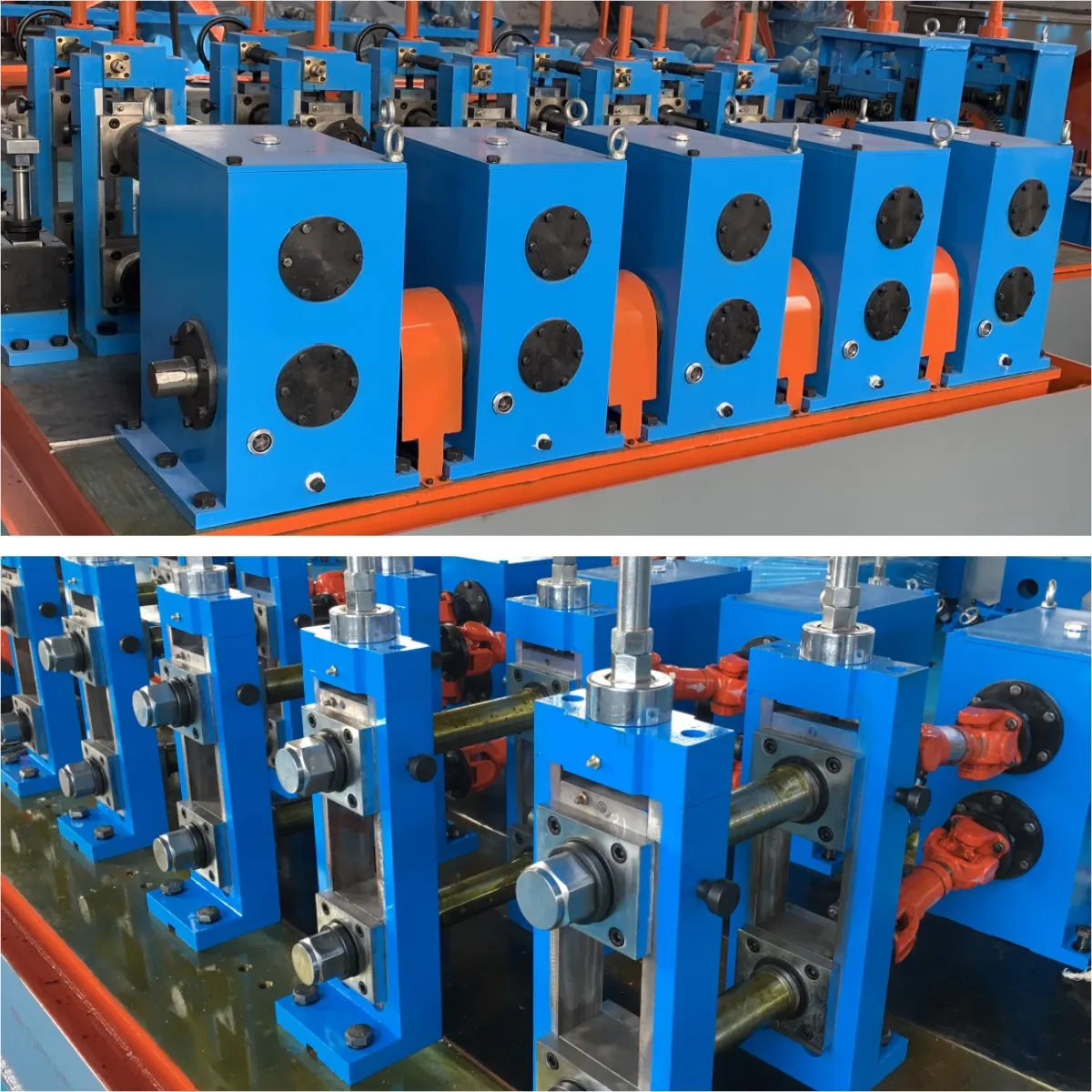
Beyond the diversity of applications, the impact of advanced `tube mill` technology on industrial efficiency and sustainability is profound. The high-speed production capabilities of modern mills significantly reduce manufacturing lead times, allowing companies to meet tight project deadlines and respond rapidly to market demands. The precision of the forming and welding processes minimizes material waste and rework, leading to substantial cost savings and a reduced environmental footprint. For instance, the accuracy of the `hydraulic uncoiler` ensures minimal edge trim waste. Furthermore, the longevity and reliability of tubes produced by robust `tube mill machine` systems contribute to the overall durability and safety of the final products, reducing maintenance requirements and enhancing long-term value. Companies investing in a sophisticated tube mill for sale are not merely acquiring equipment; they are enhancing their capacity for innovation, enabling them to develop new product lines, enter new markets, and maintain a competitive edge. This strategic investment empowers manufacturers to control their supply chain, ensure consistent quality, and respond with agility to evolving industry standards and customer requirements, driving growth and operational excellence across the board by integrating cutting-edge technology that optimizes every stage of tube production.
Choosing the Right Partner: Manufacturer Comparison and Customization Solutions
Selecting the ideal tube mill for sale requires a comprehensive evaluation of manufacturers, focusing on their expertise, technological capabilities, and commitment to client-specific solutions. A critical aspect of this decision-making process involves comparing various providers of `welded tube mill` and `erw tube mill china` solutions, assessing factors beyond just the initial purchase price. Key criteria for manufacturer comparison include their service history, which indicates reliability and long-term support; their technological prowess, reflecting innovation in areas like automation, welding efficiency, and material handling (e.g., advanced `uncoiler` systems); and their adherence to international quality standards such as ISO 9001, which signifies robust quality management systems. Companies with extensive experience in the sector, particularly those with a global footprint and a strong portfolio of successful installations, often demonstrate superior understanding of diverse client needs and complex project requirements. Furthermore, the capacity for customization is a significant differentiator. Leading manufacturers don't just offer off-the-shelf `tube mill machine` models; they provide tailored solutions that can be engineered to specific pipe diameters, wall thicknesses, material types, and production capacities. This bespoke approach might involve designing specialized tooling for unique tube profiles, integrating advanced automation features to minimize labor costs, or incorporating specific inspection technologies to meet stringent industry standards for applications like high-pressure pipelines or precision automotive components.
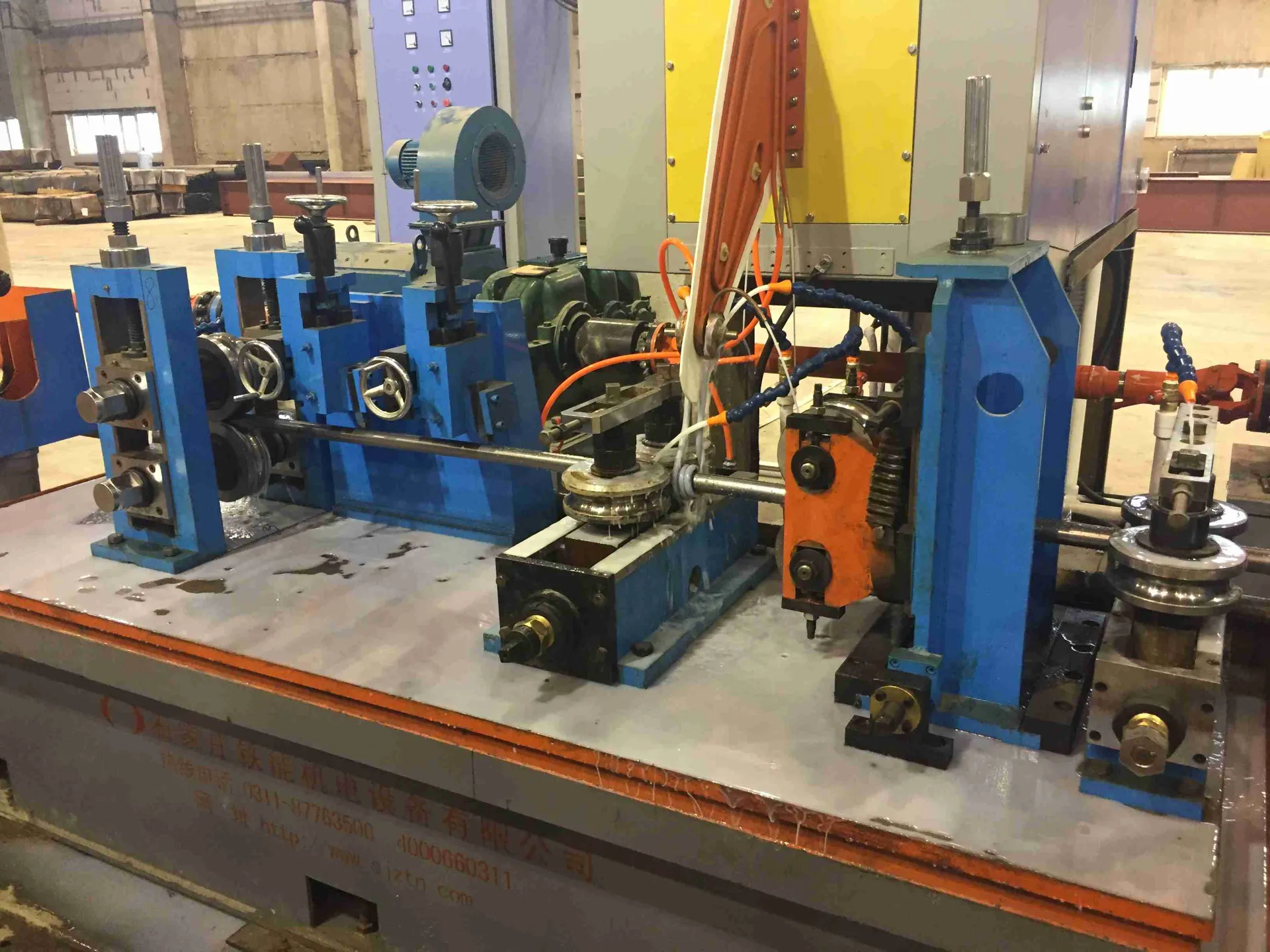
Beyond technical specifications, the manufacturer's post-sales support infrastructure is paramount. This includes the availability of spare parts, the provision of comprehensive training programs for operators and maintenance staff, and the responsiveness of technical assistance. A reliable partner will offer robust warranty periods and clear service level agreements, ensuring minimal downtime and continuity of operations. For example, our long-standing presence in the market, with over two decades of experience delivering bespoke `tube mill` solutions globally, underscores our expertise and commitment. We've successfully collaborated with industry leaders in sectors like petrochemicals and construction, providing custom-engineered lines that enhance efficiency and output. Our `hydraulic uncoiler` systems, for instance, can be designed with specific capacities and control mechanisms to suit various coil weights and material properties, ensuring seamless feeding for specialized operations. This client-centric approach, coupled with rigorous testing and adherence to global standards, ensures that every tube mill for sale is a reliable, high-performance asset tailored precisely to the buyer's unique operational environment, offering a definitive competitive edge through optimized production capabilities and enduring partnership. By focusing on these critical aspects, businesses can secure not just a machine, but a long-term, strategic partnership that fosters growth and operational excellence.
Ensuring Trust: Quality Assurance, Warranty, and Dedicated Customer Support
For B2B decision-makers, trust is foundational to any significant capital investment, especially when acquiring a specialized piece of machinery like a tube mill for sale. Establishing this trust hinges on a manufacturer's unwavering commitment to quality assurance, transparent warranty policies, and robust after-sales support. Reputable `tube mill` manufacturers adhere strictly to international quality management systems, prominently displaying certifications such as ISO 9001, which signifies a consistent approach to quality across all stages of design, manufacturing, and service delivery. Beyond standard certifications, a rigorous internal quality control protocol is essential, including detailed inspections of raw materials, precision machining of components like those found in a `hydraulic uncoiler` or the main forming stands, and comprehensive pre-delivery testing of the entire `tube mill machine` line. This testing simulates real-world operating conditions, ensuring that all systems—from the `uncoiler` to the flying saw—function seamlessly and meet specified performance metrics before shipment. This meticulous approach minimizes the risk of on-site issues and ensures a smooth installation and commissioning process, directly contributing to immediate operational uptime and return on investment for the purchaser of a `welded tube mill` or `erw tube mill china`. Transparency regarding the typical delivery cycle, which for complex custom lines can range from 90 to 180 days depending on customization and component sourcing, is also key to effective project planning for the client.
Our commitment to trustworthiness extends beyond initial quality checks to comprehensive warranty coverage, typically offering 12 to 24 months of protection against manufacturing defects, providing clients with peace of mind. This warranty is backed by readily available spare parts and a dedicated technical support team, ensuring rapid response to any operational challenges. We understand that downtime can be incredibly costly in industrial settings, which is why our customer support model emphasizes proactive maintenance guidance, remote diagnostics capabilities, and on-site technical assistance when required. Training programs for client personnel, covering both operation and routine maintenance of the tube mill for sale, are integral to empowering users and maximizing the machine's lifespan and efficiency. For example, our expert engineers provide detailed guidance on optimizing the performance of critical components like the `hydraulic uncoiler` and fine-tuning the ERW welding parameters to achieve optimal results for various material types. This holistic approach to support guarantees that our clients receive not only a superior `tube mill` but also a reliable partnership focused on ensuring their long-term success. By offering clear communication channels, comprehensive documentation, and a steadfast commitment to resolving issues promptly, we build lasting relationships based on confidence and mutual respect, solidifying our position as a trusted provider in the global `tube mill machine` market and reinforcing the authority and reliability of our offerings.
Frequently Asked Questions (FAQ) about Tube Mill Technology
-
Q1: What types of materials can a modern tube mill for sale process?
Modern `tube mill` systems are highly versatile and can process a wide range of ferrous and non-ferrous metals. Typically, they handle carbon steel (including mild steel, structural steel), stainless steel (various grades like 304, 316), galvanized steel, and sometimes aluminum alloys. The specific material capability depends on the mill's design, tooling, and welding technology. For instance, an `ERW tube mill china` is primarily designed for electric resistance welding of carbon and stainless steels, while other types of `welded tube mill` may accommodate different welding methods and materials. The choice of raw material significantly influences the final tube's properties, such as corrosion resistance, strength, and weldability, making it a critical consideration when specifying a `tube mill machine` for acquisition.
-
Q2: What is the typical delivery and installation timeline for a complete tube mill line?
The delivery and installation timeline for a complete tube mill for sale line can vary significantly based on the complexity of the machine, the level of customization required, and current manufacturing schedules. Generally, for standard configurations, manufacturing lead times range from 90 to 120 working days. For highly customized `tube mill machine` setups, particularly those requiring bespoke tooling or advanced automation features, this period might extend to 150 to 180 days. Installation and commissioning at the client's site typically take an additional 15 to 30 days, depending on the mill's size and the preparedness of the installation site. Our project management team works closely with clients to provide precise timelines and ensures seamless coordination from order placement to operational readiness, including support for the proper setup of crucial components like the `hydraulic uncoiler`.
-
Q3: What kind of after-sales service and warranty are provided with a `tube mill`?
A comprehensive after-sales service package is critical for long-term operational success. Typically, a quality tube mill for sale comes with a standard warranty period of 12 to 24 months, covering manufacturing defects and component failures under normal operating conditions. Beyond the warranty, reputable manufacturers offer extensive support, including technical assistance, troubleshooting, and prompt supply of spare parts. This often involves remote diagnostics, telephone support, and the deployment of skilled technicians for on-site repairs or maintenance. Training programs for your operational and maintenance staff are also a standard offering, ensuring your team is fully proficient in running and maintaining the `welded tube mill`, maximizing its lifespan and efficiency. We pride ourselves on building lasting relationships with our clients through responsive and dedicated support, providing peace of mind and ensuring continuous, high-performance operation of their `tube mill machine`.
Academic Citations and Industry Insights
- Smith, J. A., & Johnson, L. B. (2022). "Advances in High-Frequency Induction Welding for ERW Pipe Manufacturing." Journal of Materials Processing Technology, Vol. 301, pp. 117498.
- Wang, P., & Li, Q. (2021). "Optimization of Forming Processes in Tube Mills for Enhanced Dimensional Accuracy." International Journal of Advanced Manufacturing Technology, Vol. 116, pp. 1957-1972.
- Peters, M., & Schmidt, R. (2020). "Energy Efficiency and Sustainability in Modern Steel Tube Production." Steel Research International, Vol. 91, No. 10, pp. 2000215.
- Gao, H., et al. (2019). "Development and Application of Automated Control Systems in ERW Tube Mill Lines." Proceedings of the IEEE International Conference on Industrial Technology (ICIT), pp. 1629-1634.
- Zhou, C., & Chen, Y. (2018). "Analysis of Residual Stress Distribution in ERW Pipes and Its Impact on Service Life." Welding Journal, Vol. 97, No. 11, pp. 317s-326s.
Related Products
Related News
Send a Message
Dear customer, thank you for your attention! We provide high-quality machinery and equipment and look forward to your orders. Please inform us of your needs and we will respond quickly!

